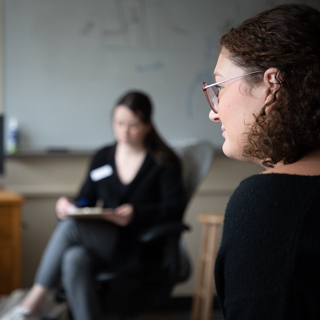Mission and Goals
UM School of Social Work Mission Statement
The University of Montana School of Social Work is committed to the transformation of inequitable social structures through the creation and dissemination of knowledge and active preparation of skilled social work practitioners who advance human rights and promote the well-being of individuals, families and communities within Montana, the United States and across the globe.
MSW Program- Mission Statement
The Master of Social Work program prepares trauma-informed, anti-racist social workers who embody the profession’s commitment to social, racial, environmental, and economic justice. The program educates students to be collaborative and integrated practitioners, advocates, community leaders, and researchers. Guided by a person-in-environment perspective, graduates of UM’s Master of Social Work program are prepared to disrupt systems of oppression, promote diversity, equity, and inclusion, and partner in community-based efforts within rural, Indigenous, and global contexts.
The goals of the University of Montana MSW program are to prepare advanced integrated social work practitioners who:
- Engage in multi-system (micro, mezzo, macro), trauma-informed social work practices that reflect commitment to anti-racist principles and community-driven change.
- Utilize knowledge, skills, values, ethics, and critical thinking to effectively practice social work in dynamic rural and global contexts.
- Understand and address historical, political, cultural, environmental, and economic forces shaping diverse life experiences and contexts of practice.
- Build successful interprofessional relationships with service providers, service organizations, and other key stakeholders that support the mission of social work, reflect core social work values, and promote community-driven change.
- Apply relevant theoretical frameworks and collaborative models of practice to plan, implement, and evaluate processes of multi-system change.
- Promote innovative practices that respect and honor difference, and are responsive to emergent social conditions, human needs, and human rights.
- Assume leadership positions in the profession, public and non-governmental human service organizations, and community action and social policy-making arenas in the state of Montana and beyond.
- Promote meaningful participation, human rights, and social, racial, economic, and environmental justice through collaboration with policy makers, service providers, community members and those affected by inequitable social conditions.
- Promote scholarly inquiry, best practices, professional development, and lifelong learning to advance social work knowledge and practice.
- Cultivate an understanding of specific social, racial, economic, and environmental justice issues affecting rural and Indigenous communities.
